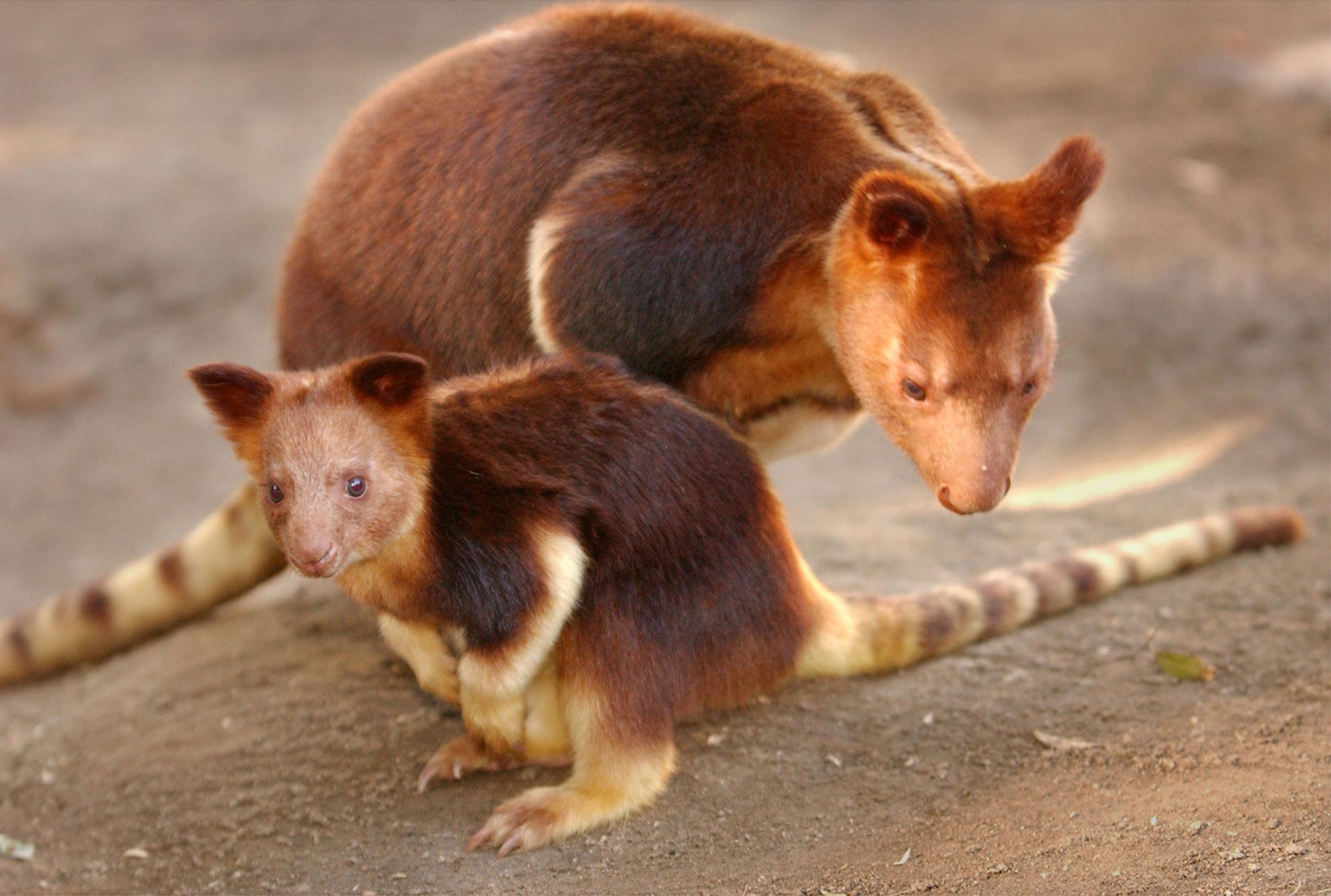Tree kangaroos ‘on brink of extinction’ due to palm oil deforestation
Palm oil is found in crisps, pizza, noodles and donuts, as well as toothpaste, shampoo and biodiesel
Your support helps us to tell the story
From reproductive rights to climate change to Big Tech, The Independent is on the ground when the story is developing. Whether it's investigating the financials of Elon Musk's pro-Trump PAC or producing our latest documentary, 'The A Word', which shines a light on the American women fighting for reproductive rights, we know how important it is to parse out the facts from the messaging.
At such a critical moment in US history, we need reporters on the ground. Your donation allows us to keep sending journalists to speak to both sides of the story.
The Independent is trusted by Americans across the entire political spectrum. And unlike many other quality news outlets, we choose not to lock Americans out of our reporting and analysis with paywalls. We believe quality journalism should be available to everyone, paid for by those who can afford it.
Your support makes all the difference.Indonesia’s native tree kangaroo is on the brink of extinction due to the planet’s addiction to palm oil, it has been revealed.
The systematic bulldozing and burning of the endangered creatute's rainforest home to make the substance use in a massive range of everyday products is leading to a dramatic dwindling of its numbers.
The kangaroo’s cousin, the cuscus, is also facing extinction as hunting and habitat loss takes its toll, according to environmental group Mighty.
“They go in and bulldoze the forest, take out high value wood, then set the biomass on fire,” says Deborah Lapidus, campaigns director at Mighty.
In just 25 years, 76 million acres of Indonesia’s rainforests have disappeared - an area the size of Germany.

The golden-mantled tree kangaroo, which was discovered in Papua, has already lost 99% of its historic range.
Much smaller than their common cousins, tree kangaroos live off the ground, using their tails to hang from branches and their stronger limbs for climbing.
Already listed as critically endangered, there are thought to be fewer than 250 left in the wild. Palm oil is the edible vegetable oil derived from the fruit of oil palms.
It is used to make a vast array of consumer products both in Europe and the US. These include foods such as crisps, pizza, noodles and doughnuts, as well as toothpaste, shampoo and biodiesel.
Around 60 million tonnes of it is produced each year around the planet and exported to more than 70 countries, including the UK.
Mighty claim palm oil company Korindo has been burning forests in Papua, knowing full well the practice is illegal.
In response to the finding, two of Korindo’s direct buyers, palm oil traders Wilmar and Musim Mas, have stopped using the company.
A Korindo subsidiary has announced a moratorium on new forest clearing, but Mighty say it is falling far short of appropriate action.
Campaigns director Deborah Lapidis said: “Both deforestation and burning is damaging, but the difference is the burning is illegal. The fires are also a public health hazard.
“The Indonesian government is not doing nearly enough to punish the companies starting them.
“However, the Asian haze crisis was so high profile there’s a little more willingness to prosecute than there was before.”
“I’m hopeful Korindo will come around as a result of market pressure, but for us the bigger problem is there are many more Korindos out there.”
A spokesman for Korindo said: “NGOs are spreading groundless arguments to foreign media and purchasers of Indonesian palm oil.
“In particular, they took advantage of Indonesia's poor circumstances in the second half of 2015.
“This was the period of an extreme dry season in Indonesia, with multiple wildfire outbreaks not only in palm plantations, but also in natural forests.
“Our hypothesis is that the natives, who have gained easy access to the area, have caused the fires for the purpose of hunting wildlife living in the remaining trees.”
Forest fires engulfing Indonesia in 2015 were so widespread that for nearly four weeks Indonesia’s daily carbon emissions were higher than the US.
Widely known as the Asian haze crisis, more than half were in tropical peatland areas, concentrated in Papua.
Earlier this year, Pepsico, Johnson & Johnson and Colgate-Palmolive were accused by Greenpeace of failing to make sure their products did not contain palm oil grown on deforested land.

Join our commenting forum
Join thought-provoking conversations, follow other Independent readers and see their replies
Comments